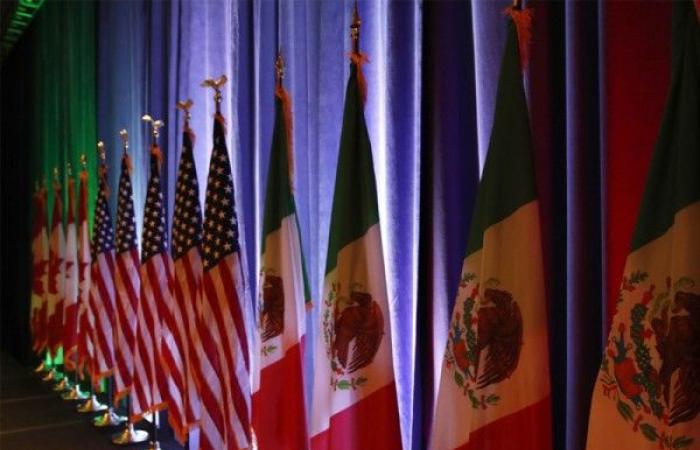Canadian Prime Minister Justin Trudeau promises a firm and rapid “response” if the United States imposes its customs tariffs. Mexican President Claudia Sheinbaum calls for people to “stay calm” and “keep a cool head” in the face of Trump.
Promise of a firm response, call to keep “a cool head”: the United States’ neighbors, Canada and Mexico, are seeking a solution to Donald Trump’s trade pressures, which threaten to rock their economies.
It has been weeks since the American president announced his intention to impose 25% customs duties on his neighbors despite the trade agreement that binds them.
For his return to the White House on Monday, without taking into account their protests, he warned that it would be done on February 1.
On Tuesday, Canadian Prime Minister Justin Trudeau promised a firm and rapid “response” if the United States imposes its customs tariffs. But he did not immediately give details of the planned retaliatory measures.
“Everything is on the table and I support the principle of customs duties equivalent to the nearest dollar,” Mr. Trudeau declared at a press conference, recognizing that this “will have a cost for Canadians.”
According to economists, the imposition of additional customs duties would trigger a deep recession in the country, where 75% of exported goods and services go to the United States.
Hundreds of thousands of Canadian jobs are at stake and, according to a scenario from the Canadian Chamber of Commerce, an American increase in customs duties followed by a response from Canada on American imports could cause Canadian GDP to fall by 2 .6%, while American GDP would see a decline of 1.6%.
In the south of the United States, the President of Mexico, Claudia Sheinbaum, for her part called for people to “remain calm” and “keep a cool head” in the face of Donald Trump.
-Mexico will become the United States’ leading trading partner in 2023, ahead of China. That year, the U.S. trade deficit reached $150 billion.
Fentanyl
“We must refer to the decrees,” added the Mexican president. “For now, what President Donald Trump has signed is that the trade agreement continues, that they open consultations for the review that will take place in 2026.”
This Canada-United States-Mexico free trade agreement (USMCA), signed in 2018 during Trump’s first term, theoretically protects Mexico and Canada. The American president himself estimated at the time that it was “the best and most important trade agreement ever signed by the United States”.
It also provides for a potential revision mechanism, planned for 2026, which would allow the three states to adapt the trade agreement, while conflicts between the signatories have multiplied in recent years, concerning for example American transgenic corn, Canadian dairy products or auto parts.
Donald Trump on Monday justified the imposition of customs duties because Mexico and Canada “let a large number of people (…) enter (on American soil), and a lot of fentanyl too”, in reference to this opioid responsible for a huge health crisis in the United States.
If foreign companies want to escape US trade barriers, “the only thing they can do is build factories in the United States and hire Americans at very good wages,” said Howard Lutnick, tipped as future Secretary of State for Commerce.
The Canadian Prime Minister, who submitted his resignation at the beginning of January, but whose replacement will not be known until March 9, still hopes to convince the Trump administration not to impose customs duties. “This is a crucial moment for Canada and Canadians,” he said.






